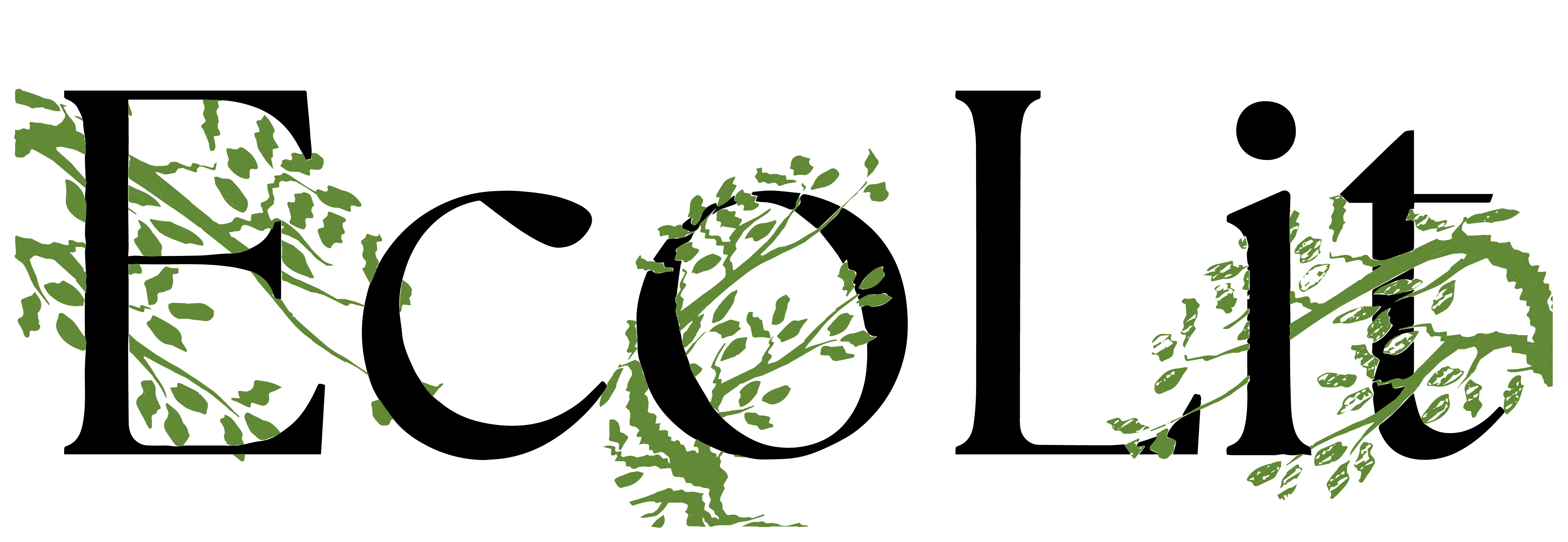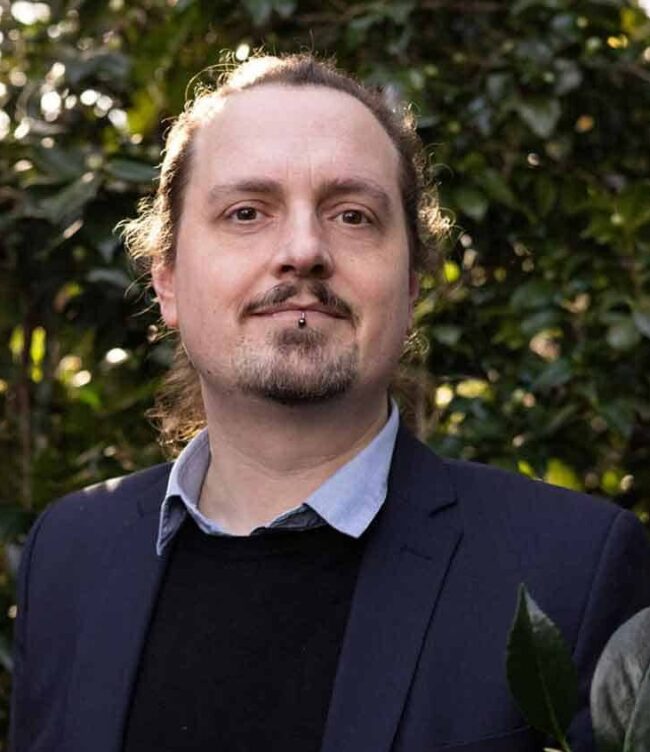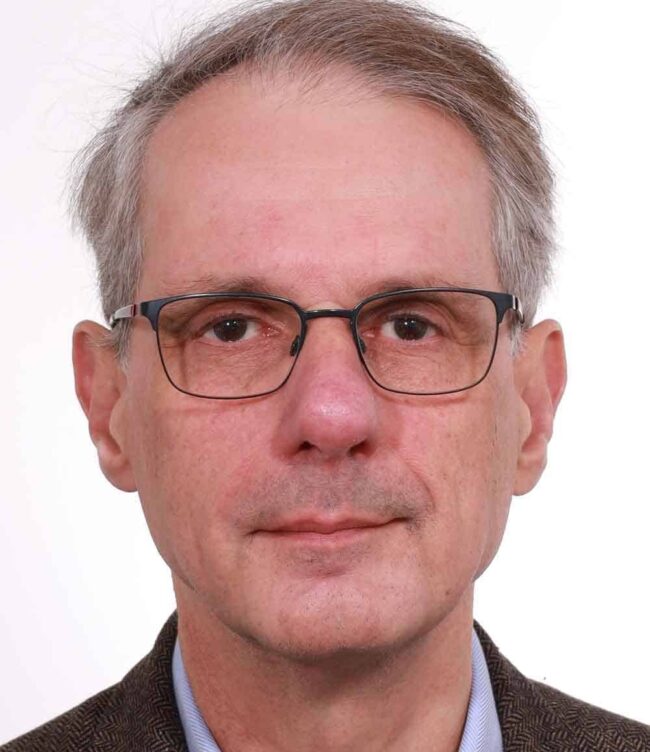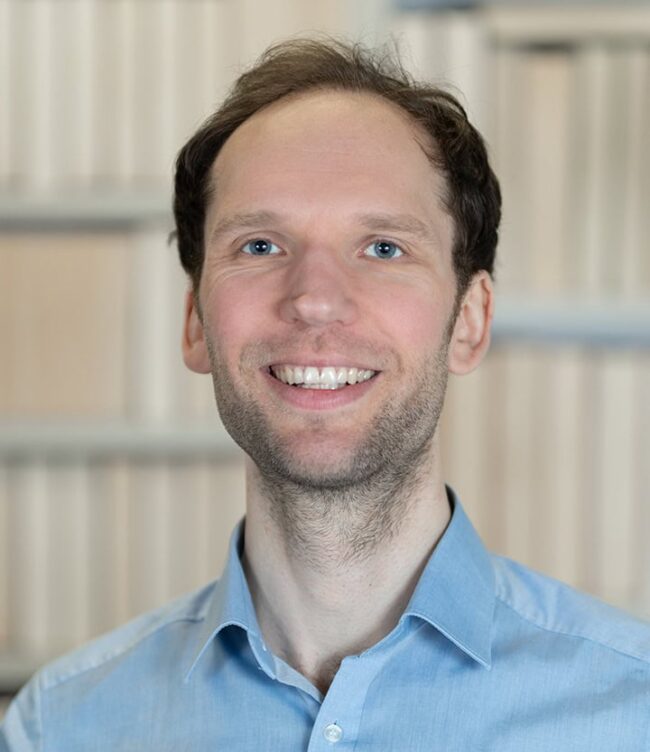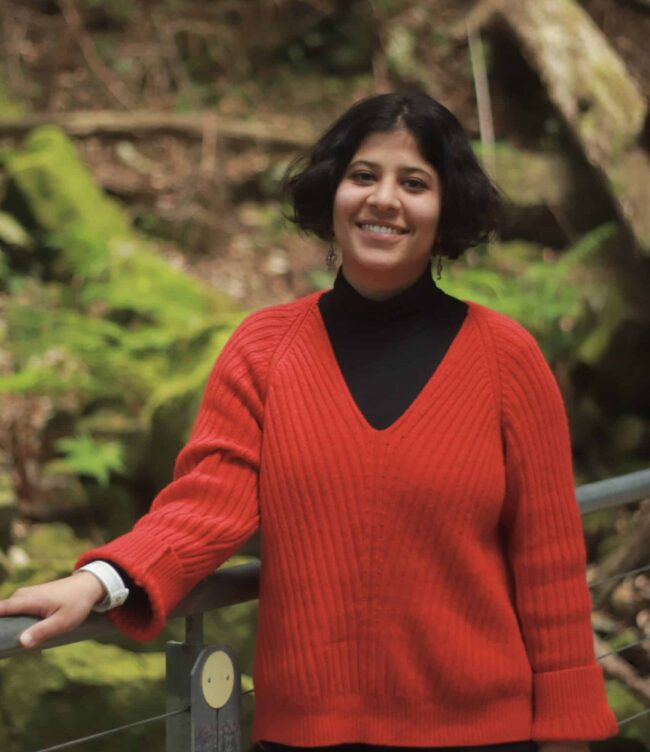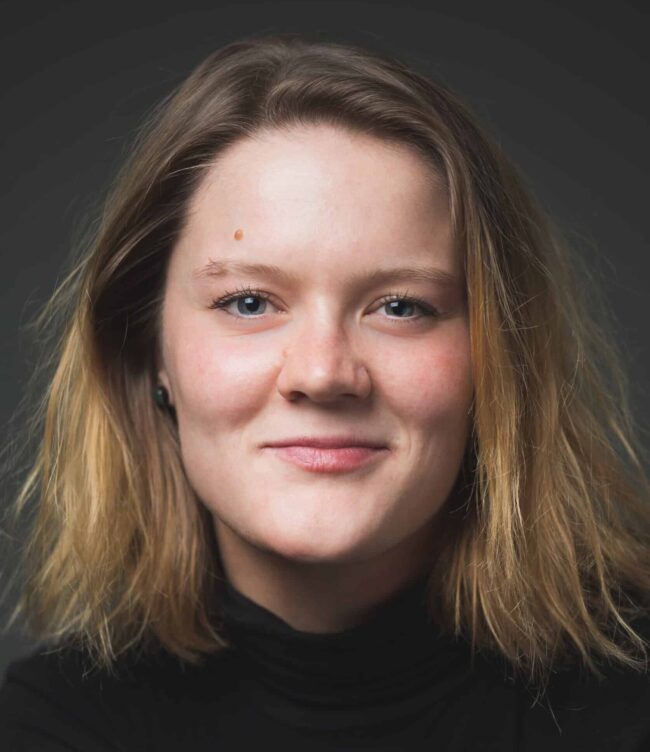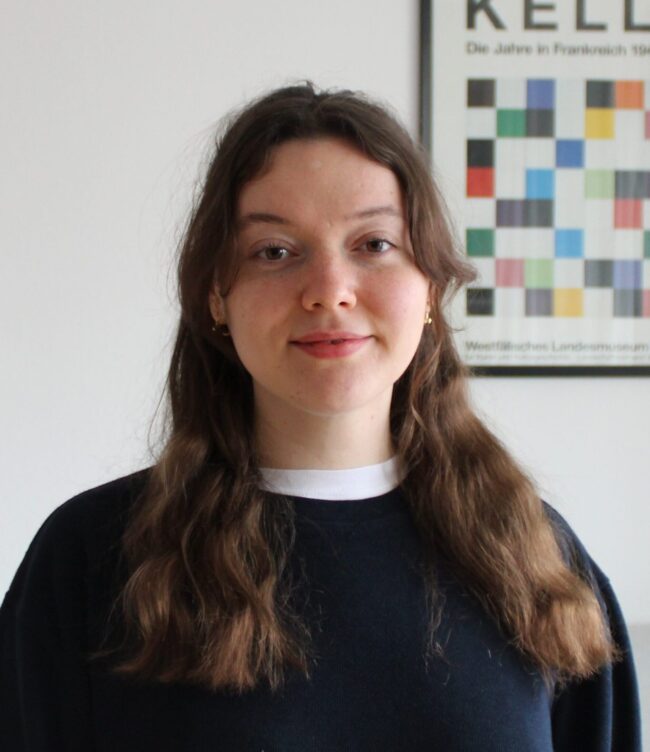EcoLit Team
Where did you grow up?
I grew up in Germany’s former industrial heartland and largest urban conglomerate, the Ruhr Area. I lived next to the (in)famous open sewage system of the Emscher river – once one of the deadliest ecosystems in Europe, and currently undergoing spectacular rewilding efforts.
What significance do you see in cultural education?
Cultural education empowers young learners and emerging adults to understand and contribute to the webs of meaning that connect us. It is always powerful to see this happen in children, but I am most happy when it happens in teacher training contexts and educators begin to see that ecological learning isn’t about science but about wonder and creativity.
An early memory of a moment of emotional closeness to nature:
There’s certainly countless memories of strolls in parks and forests, listening to birdsong or getting excited about animals (including dinosaurs!)… but I distinctly remember the opening scene of The Lion King as a moment of ecological awakening. A preschooler then, I can still be found singing the tune played in that scene when I think nobody’s listening.
What are you currently reading and listening to?
After having read countless dystopian climate change novels for a recent project, I have now happily returned to a stack of modernist fiction as well as Samantha Harvey’s Orbital. Soundtrack to this is The Cure, Poppy Ackroyd, and Anna von Hausswolff.
Where did you grow up?
I grew up in Hamburg—more precisely, in a suburb. The great port, often called the gateway to the world, felt distant yet always present. Today, the Elbphilharmonie concert hall defines the skyline of HafenCity. From an ecological perspective, Hamburg has two faces: it is one of the world’s greenest metropolitan areas, yet it is also home to Jungfernstieg, Germany’s first paved street.
What significance do you see in cultural education?
Cultural education is essential to society—when it succeeds in creating imaginative, aesthetic spaces of experience, it allows us to see the world differently. As a music educator, I cherish every moment I have helped students invent their own music, write songs, and bring them to life on stage.
An early memory of a moment of emotional closeness to nature:
As a child, I was fascinated by cosmology. I watched images of the first moon landing—astronauts in spacesuits wandering through a rocky, barren landscape. While I was captivated, I also felt grateful to live on a green planet. I never want to have to emigrate to Mars.
Where did you grow up?
In the ‘Ruhrgebiet’. It may not be a fun fact, but nature and industry are closely linked there. In the past, the sky turned red when steel was cast in the factories, like a sunset. Today, people go for walks on the green slag hills.
What significance do you see in cultural education?
When I was a music teacher at a secondary school, we did a composition project where we performed at the Gloria Theater in Cologne. I fondly remember how my class blossomed during this project.
An early memory of a moment of emotional closeness to nature:
The blackbird in the yard. The ultimate jazz animal!
What are you currently reading and listening to?
Leyla Bektas: Wie meine Familie das Sprechen lernte
Where did you grow up?
I grew up in the twin cities of Navsari and Surat in the state of Gujarat, India. Famously known as “the diamond city” or “the silk city”, Surat (face) is also one of the greenest cities I have lived in. Close to the Arabian Sea, people there, also known as Surtis, have a very special and joyous food culture which often also unfolds on the streets. For example, roadside picnics on weekends are a common sight with people sitting on sidewalks next to the food trucks, enjoying warm meals with their families and friends, never minding the traffic in the background.
What significance do you see in cultural education?
The value of cultural education for me is in its capacity to create accessible spaces where people from all walks of life are met with joy and support. Spaces where people are encouraged to ask questions and contribute to cultural diversity with curiosity and creativity.
I am particularly fond of everyday acts of kindness, I find them highly educational. For example, every time a stranger holds the door open for me knowing I am still a few steps away, I feel like it is one of the most valuable lessons I can ever learn and I hope I do.
An early memory of a moment of emotional closeness to nature:
Growing up, my sister and I would go for skating lessons in the same park as where my dad’s office used to be. I remember skating round and round the rink surrounded by trees full of bats, the funny smell in the park and the calls of crows, children and parents. We really enjoyed moving on our roller-skates and could go on for hours observing bats and people, taking breaks for water and fruit, and continuing again, sometimes falling but always getting back up.
What are you currently reading and listening to?
The Beautiful Risk of Education by Gert J.J. Biesta.
Song of the Motherland (feat. Anum Iyapo) by Shabaka Hutchings.
Where did you grow up?
In Jena in Thuringia – the city is also known as the Tuscany of the East, because the surrounding shell limestone hills store so much heat that there is an early spring, hot summer, long fall and mild winter. Jena is also known for its seven wonders!
What significance do you see in cultural education?
Every book, every concert, every moment in which people express their emotions through words or sound is “educational” for me. I get to participate in a previously unknown view of the world that inspires me to rethink my own point of view.
An early memory of a moment of emotional closeness to nature:
I loved the trees around our garden. They lined an avenue where I practiced riding my bike – with my eyes closed, because the trees gave me an acoustic orientation. I had the feeling that they were cheering me on.
What are you currently reading and listening to?
An Idea Can Go Extinct by Bill McKibben
Where did you grow up?
I grew up in Sechtem, a village between Cologne and Bonn. Sechtem is surrounded by many lettuce fields and is therefore also known as the ‘island in the lettuce’ of the surrounding villages.
What significance do you see in cultural education?
Cultural education is particularly important to me in terms of inclusion. Through cultural education, people change, adopt new perspectives, reflect on themselves and develop creative forms of expression. It is closely linked to social participation and offers the potential to create spaces in which different realities of life and forms of expression are recognised and valued.
An early memory of a moment of emotional closeness to nature:
There is a small meadow orchard hidden away in my home village. I still remember the first time I discovered it as a child. It was early summer, lots of bees were flying around me and you could already smell the first fallen fruit.
What are you currently reading and listening to?
Susan Sontag: Regarding the pain of others
The Roches: The Troubles
Hanns Eisler: Pappel vom Karlsplatz
